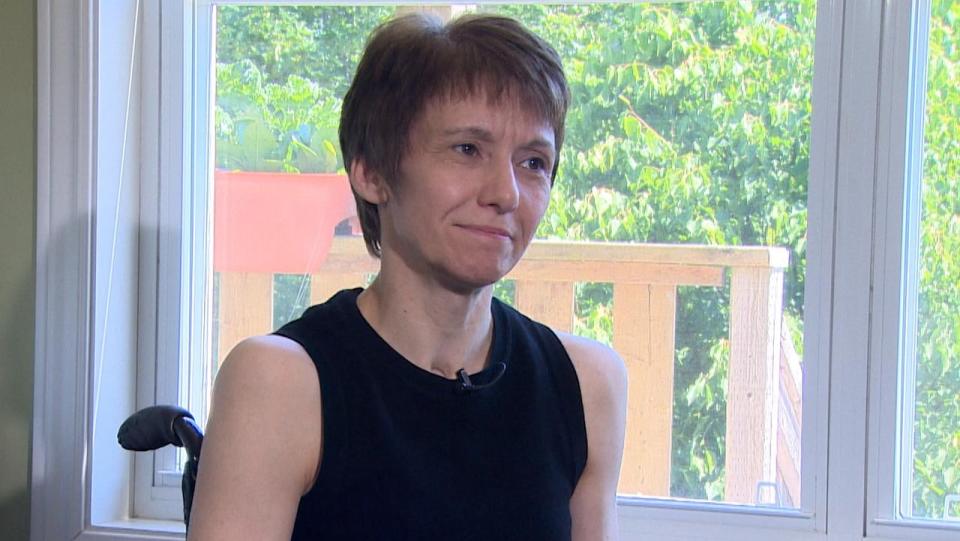N.L. announces new income top-up for people with disabilities


Social Development Minister Paul Pike announced a $26-million annual fund on Friday that will put extra money into the pockets of persons with disabilities each month. (Ted Dillon/CBC)
The Newfoundland and Labrador government says the goal of new benefit is to help achieve a basic income for the disabled community.
Social Development Minister Paul Pike, announcing the disability benefit Friday morning at a news conference in St. John's, said there are many barriers and challenges for people with disabilities and their families, especially when they live on low incomes.
"We have and will continue to take action to make investments that will contribute to building a province that is inclusive, accessible and equitable," he said.
Pike says the benefit has been in the works since 2022 and isn't a response to the federal government slashing over $600 million to the labour market development agreement.
There are some criteria to meet. Residents must be between 18 and 64 years old, qualify for the federal disability benefit and have an income below $42,404 to gain access to the new program.
If those criteria are met a person can get up to $600 extra per month — $400 from the province and $200 from the federal program. But the full $400 from Newfoundland and Labrador is for people with an annual income of less than $29,402. If they make over that, but below $42,404, they can still qualify for a partial benefit.
On top of the income benefit, the province is kicking in an annual payment of $1,200 for registered disability savings plans.
"Through the RDSP our government is contributing to the long-term security of persons with disabilities," said Pike.

Nancy Reid, executive director of the Coalition of Persons with Disabilities N.L., says it's important that the benefit be an addition to, not a replacement for, other support programs. (Ted Dillon/CBC)
The new benefit will also be an addition to any support a person with a disability is already receiving. Whether its income support or another government program, the full benefit gets tacked on top.
Nancy Reid, executive director of the Coalition of Persons with Disabilities Newfoundland and Labrador, says having zero clawbacks from other support programs is the only way the new benefit will work.
"Obviously this benefit is only important if it's a benefit on top of existing supports," Reid told CBC News after meeting with government staff to discuss the new program.
"That was stated several times in the conversation and stated very clearly that nothing being received by a person, through whatever source, would be removed or changed in any way. That is certainly positive and something that is necessary for this to be meaningful in the community."
The government expects more than 5,000 people living in the province will receive the new benefit, but they'll have to wait until next year.
Pike said the savings contribution will begin in January and the income benefit will follow in July.
Reid said Friday's announcement is a good first step but hopes groups like hers will be able to work with the province over the next year to ensure people don't fall through the cracks.
"A phrase we often say is 'nothing about us without us,' and this speaks to that so clearly," she said.
"This disability benefit is about persons with disabilities. But we in the community have been given no indication that persons with disabilities were actually part of this planning and where we went from there. Yes, there were consultations. But consultations are very different from actually being in the room and a part of the planning and the rollout of it."
Download our free CBC News app to sign up for push alerts for CBC Newfoundland and Labrador. Click here to visit our landing page.


